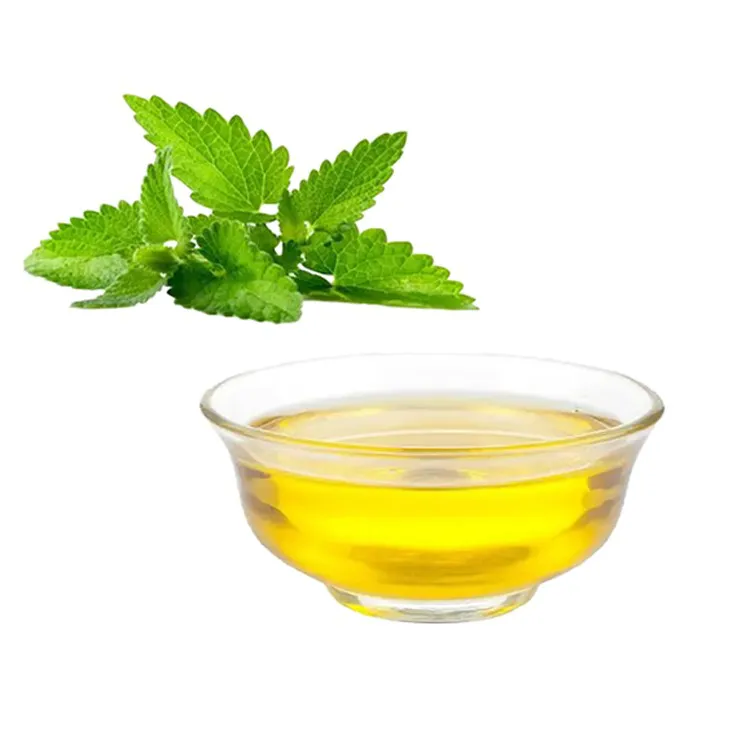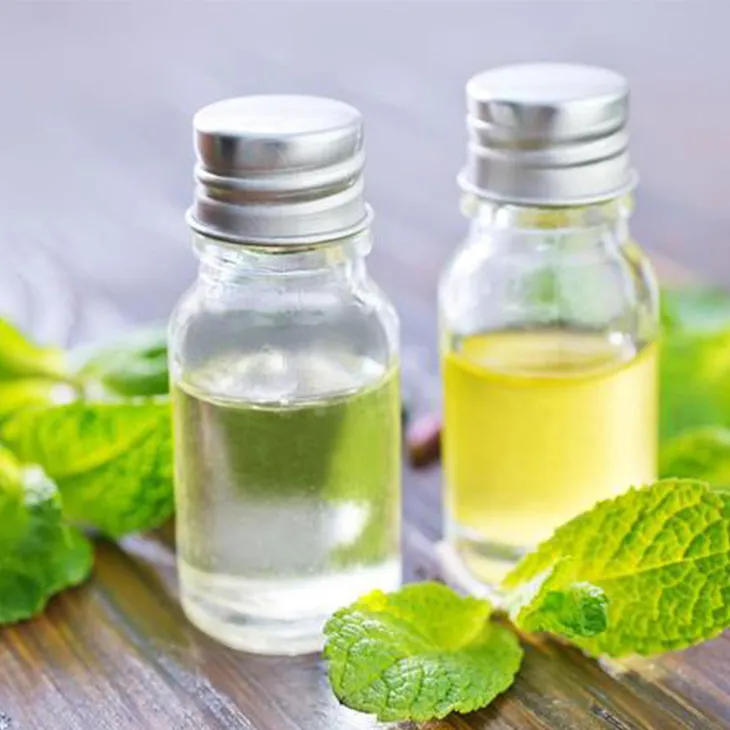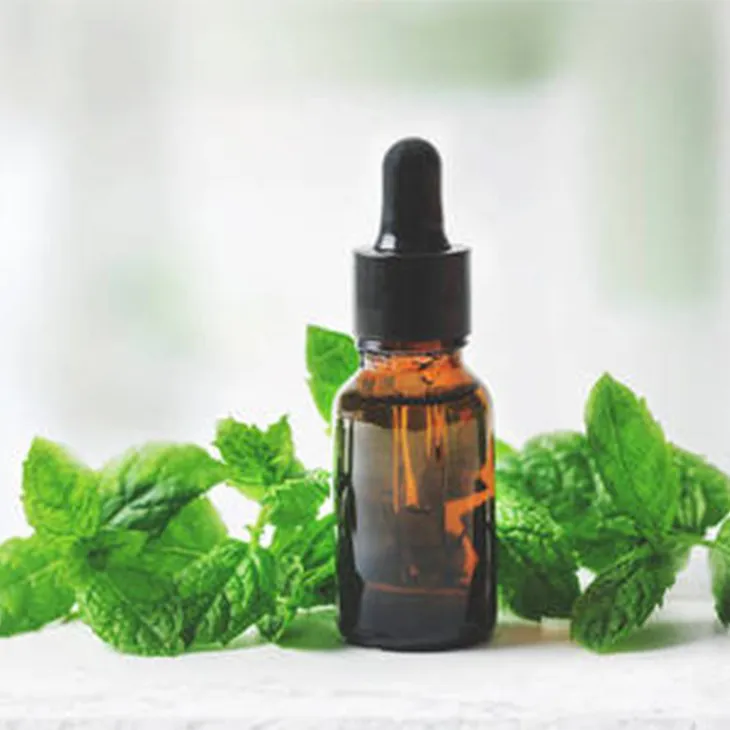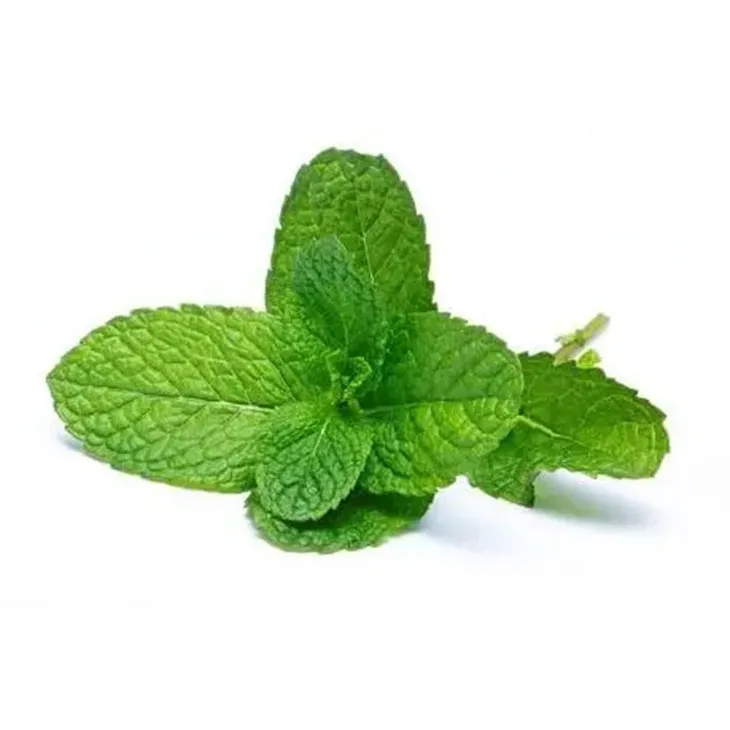- 0086-571-85302990
- sales@greenskybio.com
14 Great Health - care Benefits of Peppermint Oil.
2024-11-12

Introduction
Peppermint Oil is a natural essential oil that has been used for centuries in various traditional medicine practices. It is derived from the peppermint plant, which is a hybrid of watermint and spearmint. This oil is known for its refreshing and minty aroma, but more importantly, it offers a wide range of health - care benefits. In this article, we will explore 14 great health - care benefits of Peppermint Oil.

1. Digestive Aid
Peppermint Oil is well - known for its ability to relieve digestive problems. Indigestion, which can cause discomfort, bloating, and a feeling of fullness after eating, can be alleviated by peppermint oil. The oil helps to relax the muscles of the digestive tract, allowing food to move through more easily. Bloating, often caused by gas buildup in the intestines, is also reduced. Additionally, it can combat nausea, whether it is due to motion sickness, overeating, or other factors. For example, taking a few drops of peppermint oil diluted in water or using peppermint - flavored products can provide relief.

2. Analgesic Effects
Another significant benefit of peppermint oil is its analgesic or pain - relieving properties. Headaches can be soothed by the application of peppermint oil. When applied topically to the temples or forehead, it creates a cooling sensation that helps to ease the pain. It also has an effect on muscle pain. Whether it is muscle soreness from exercise or other causes, peppermint oil can be massaged into the affected area to reduce discomfort. This is because it contains compounds that interact with the body's pain receptors, reducing the perception of pain.

3. Respiratory Health
Peppermint oil is effective in improving respiratory function. Coughs can be relieved as it helps to soothe the irritated airways. It has expectorant properties, which means it can help to loosen mucus in the lungs and bronchial tubes, making it easier to cough up. Congestion, whether in the nose or chest, can also be reduced. Inhaling the vapor of peppermint oil, for instance, by adding a few drops to a bowl of hot water and inhaling the steam, can open up the airways and provide relief.

4. Stress Relief
Stress is a common problem in modern life, and peppermint oil can be a helpful remedy. The aroma of peppermint oil has a calming effect on the nervous system. It can reduce feelings of anxiety and tension. When used in aromatherapy, for example, by diffusing it in a room or using it in a scented sachet, it can create a relaxing environment. This helps the body and mind to unwind, promoting a sense of well - being.
5. Mental Focus
Peppermint oil can enhance mental focus. Its refreshing scent can stimulate the brain, making it easier to concentrate on tasks. This is particularly useful for students or those who need to be productive at work. The aroma can increase alertness and improve cognitive performance. For example, using a peppermint - scented lotion on the hands or having a peppermint - scented diffuser in the study or workspace can boost mental clarity.
6. Anti - Inflammatory Properties
Peppermint oil has anti - inflammatory properties. Inflammation in the body can be caused by various factors such as injury, infection, or autoimmune disorders. The oil can help to reduce inflammation at the site of application. Whether it is inflammation in the skin, joints, or other tissues, peppermint oil may be beneficial. For example, it can be used topically on inflamed skin conditions to soothe redness and swelling.
7. Antibacterial and Antifungal Effects
Peppermint oil has antibacterial and antifungal properties. It can help to fight off harmful bacteria and fungi. This makes it useful in preventing and treating certain infections. For example, it can be used on minor skin infections caused by bacteria or fungi. It can also be used in oral hygiene products to combat bacteria in the mouth, helping to prevent bad breath, cavities, and gum disease.
8. Skin Health
Peppermint oil is beneficial for skin health. It can be used to treat acne as it has antibacterial properties that can kill the bacteria that contribute to acne breakouts. It also has a cooling effect on the skin, which can soothe irritation. Additionally, it can help to moisturize the skin when used in appropriate formulations. However, it should be used with caution as it can be irritating to some skin types in its pure form.
9. Hair Health
Peppermint oil can also promote hair health. It can stimulate the scalp, increasing blood circulation. This can help to nourish the hair follicles, promoting hair growth. It can also help to combat dandruff as it has antifungal properties that can address the fungal overgrowth often associated with dandruff.
10. Menstrual Cramps Relief
For women, peppermint oil can provide relief from menstrual cramps. The muscle - relaxing properties of the oil can help to ease the uterine contractions that cause cramps. It can be applied topically to the lower abdomen or used in a warm compress for added relief.
11. Immune System Support
Peppermint oil can support the immune system. Its antibacterial and antiviral properties can help the body to fight off infections. By keeping harmful pathogens at bay, it can contribute to overall health and well - being. Regular use of peppermint oil, either through inhalation or topical application, may strengthen the body's defenses.
12. Oral Health
As mentioned earlier, peppermint oil has antibacterial properties that are beneficial for oral health. It can be used in mouthwashes or toothpaste to freshen breath, kill bacteria, and prevent dental problems. Additionally, it can soothe minor mouth sores and inflammations.
13. Sinus Relief
Peppermint oil can provide relief from sinus problems. The inhalation of its vapor can help to clear the sinuses, reducing congestion and pressure. It can also soothe the irritated sinuses, providing comfort.
14. Sleep Aid
Finally, peppermint oil can be a useful sleep aid. Its calming aroma can help to relax the body and mind, making it easier to fall asleep. Using it in a diffuser in the bedroom or applying a diluted form on the pillow can promote a restful night's sleep.
Conclusion
Peppermint oil is truly a remarkable natural remedy with a wide array of health - care benefits. From digestive problems to stress relief, from skin health to immune system support, it has much to offer. However, it is important to use it properly and with caution, especially when using it topically or internally. Always consult a healthcare professional before using peppermint oil for medicinal purposes, especially if you have any underlying health conditions or are taking medications.
FAQ:
1. How does peppermint oil relieve digestive problems?
Peppermint oil can relax the muscles in the digestive tract. This helps to ease the movement of food through the system, reducing issues like indigestion, bloating, and nausea. It has a calming effect on the digestive system which is beneficial for these common problems.
2. What are the mechanisms behind peppermint oil's analgesic effects?
The active components in peppermint oil, such as menthol, interact with the body's sensory receptors. This interaction can interfere with the transmission of pain signals to the brain, thereby providing relief from headaches and muscle pain.
3. How does peppermint oil improve respiratory function?
Peppermint oil has properties that can help to open up the airways. It can reduce inflammation in the respiratory tract and thin mucus, which in turn relieves coughs and congestion, allowing for better breathing.
4. In what way does peppermint oil enhance mental focus?
Peppermint oil may have an impact on the brain's neurotransmitters. It can increase alertness and improve cognitive performance, which helps to enhance mental focus.
5. Can peppermint oil be used by everyone to relieve stress?
While peppermint oil is generally safe for most people, some individuals may be allergic to it. Also, pregnant women and people with certain medical conditions should consult a doctor before using it for stress relief. For those who can tolerate it, its calming aroma can have a positive effect on reducing stress levels.
Related literature
- The Therapeutic Benefits of Peppermint Oil in Digestive Disorders"
- "Peppermint Oil: A Natural Analgesic Agent"
- "Respiratory Health and Peppermint Oil"
- "Peppermint Oil's Impact on Mental Focus and Stress Relief"
- ▶ Hesperidin
- ▶ Citrus Bioflavonoids
- ▶ Plant Extract
- ▶ lycopene
- ▶ Diosmin
- ▶ Grape seed extract
- ▶ Sea buckthorn Juice Powder
- ▶ Fruit Juice Powder
- ▶ Hops Extract
- ▶ Artichoke Extract
- ▶ Mushroom extract
- ▶ Astaxanthin
- ▶ Green Tea Extract
- ▶ Curcumin
- ▶ Horse Chestnut Extract
- ▶ Other Product
- ▶ Boswellia Serrata Extract
- ▶ Resveratrol
- ▶ Marigold Extract
- ▶ Grape Leaf Extract
- ▶ New Product
- ▶ Aminolevulinic acid
- ▶ Cranberry Extract
- ▶ Red Yeast Rice
- ▶ Red Wine Extract
-
Motherwort Extract
2024-11-12
-
Lily extract
2024-11-12
-
Sophora Japonica Flower Extract
2024-11-12
-
Grape Leaf Extract
2024-11-12
-
Agaricus Blazei Extract
2024-11-12
-
Ginseng Root Extract
2024-11-12
-
Black Rice Extract
2024-11-12
-
Honeysuckle Pollen
2024-11-12
-
Oat Straw Extract Powder
2024-11-12
-
Green coffee bean Extract
2024-11-12





















